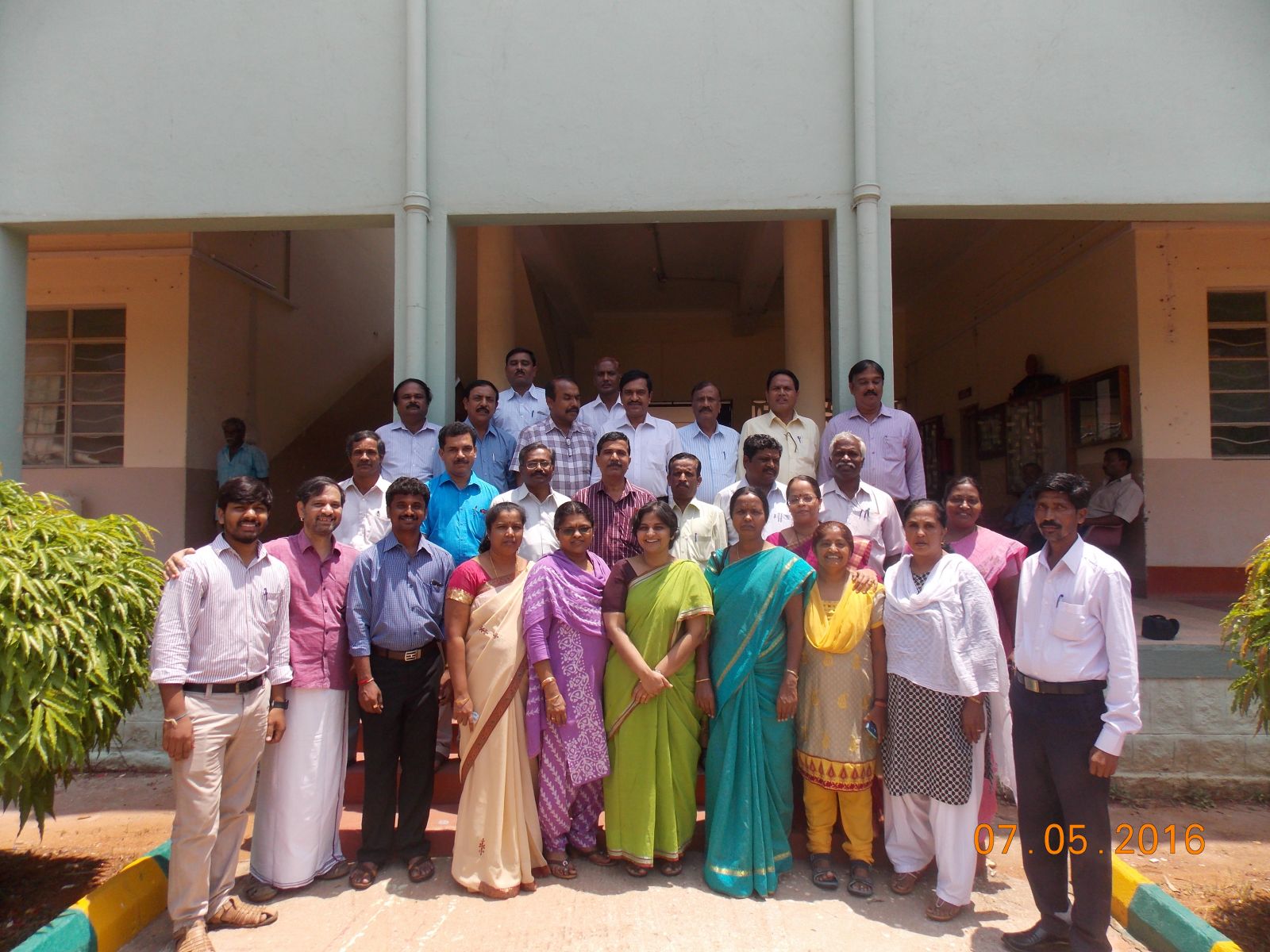“Communities of Practice (CoP) for Teacher Educators” training programme for DIET Principals of Karnataka State at Regional Institute of Education (NCERT), Mysuru, Karnataka

New Delhi, May 09, 2016: Integrating Information and Communication Technologies (ICT) in teacher education (TE) through CoP is a priority for CEMCA. The CoP for Teacher Educators capacity building workshop was conducted at the RIE Mysuru (Regional Institute of Education) from 4 to 7 May, 2016. Twenty four (07 Female and 17 Male) DIET Principals from all districts of Karnataka state attended the training programme
In his inaugural address, Prof. D.G. Rao, Principal RIE Mysuru stressed on the need for continuous professional development (CPD) for DIET faculty, specially for Principals. The heads of institutions require knowing the latest advances in the field of education, specially education technology. Representing Director DSERT, Sri Manjunath, Senior Assistant Director DSERT (Department of State Education Research and Training), spoke about the creation of the “Teacher Educators - Community of Practice” for DIET faculty in Karnataka, over the last three years, and the need for Principals, as heads of DIETs, to participate in and support the COP. Over a period of four days the participants learnt the integration of ICT in teacher education, with a theme identified for each of the four days: Day 1 - Principal as a (self and peer) learner; Day 2 - Institutional learning (Integration of ICT for DIET work planning and monitoring); Day 3 - Systemic learning (Teacher Professional Development) and Day 4 - Institutionalising the learning from the workshop (through DIET projects).
Participants learnt Internet, email and mobile apps to support their self and peer learning. They learnt about institutional work planning using Calendar, and Digital Resource Centre creation using cloud storage. They were oriented to the use of on-line survey forms for collecting teacher training needs. Free educational software tools such as Geogebra and Freemind were demonstrated to the participants. All participants were enrolled in the COP mailing group and a mobile phone group for DIET Principals was created during the workshop.
In order to connect ICT learning to teacher education contexts, aims and challenges, the National Curriculum Framework for Teacher Education (NCF TE), 2010 was discussed and presented in the workshop. All chapters were presented by one of the participants, to provide the context and challenges of TE. The workshop focused on how the COP approach could support Principals to work and learn together towards addressing the challenges and achieving institutional aims. In the last session, each participant selected a project for ICT integration in one of the following areas: 1. Work planning and monitoring (Google calendar); 2. Information management and resource centre (Google drive); 3. Teacher training information management (Google form); 4. DIET institutional community of practice (Telegram); 5. DIET Institutional Information sharing and publishing (DIET WIKI).
DSERT will need to support and monitor the implementation of these projects in the DIETs and support peer sharing and learning, through that process CoP is built. For many of the participants, this was their first exposure to ICT; hence there is also a need for continuing the capacity building process of the group.

